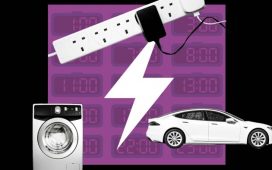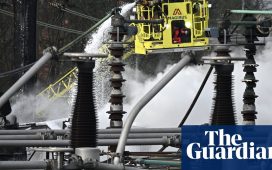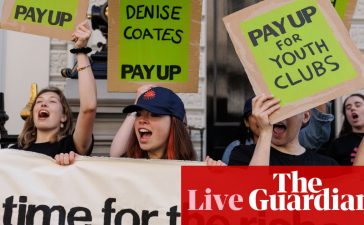Receive free Instant Insight updates
We’ll send you a myFT Daily Digest email rounding up the latest Instant Insight news every morning.
It’s easy to portray Rishi Sunak’s decision to dilute some net zero policies as simply a depressing, cynical move to create a wedge with Labour. It comes not long after the Conservatives won a by-election victory in Uxbridge after a backlash by residents against the Labour mayor Sadiq Khan’s insistence on expanding London’s ultra-low emission zone. As the prime minister came off the podium, one moderate Tory told me he thought Sunak had sounded “desperate”.
That it was left to Suella Braverman, the home secretary and self-styled scourge of the “tofu-eating wokerati”, to defend the move on Wednesday, simply because she happened to be appearing on the BBC, served only to fuel doubts that the prime minister actually wants a grown-up conversation with the nation about net zero.
But such a conversation does need to be had. Sunak’s speech reflected a reality that has been dawning for most European governments since Russia invaded Ukraine. Namely that some of the easiest wins have been secured already (Britain’s dash for gas, which has half the carbon emissions of coal, being a prime example) and that the next stage of getting anywhere close to net zero will entail pushing costs on to consumers that they haven’t been warned about. When the Swedish company Vattenfall recently pulled out of building an offshore wind farm in Norfolk, it was because a cost gap had opened up which the UK Treasury was unwilling, or unable, to bridge.
No leader has been brave enough to level with voters. Boris Johnson made it all sound as though it would be another free lunch. His government even refused to join Spain and France in asking shops and offices to turn down the heating in the first months of the Ukraine war. Sunak signed a hugely expensive energy price guarantee to protect consumers — including even the wealthiest and second-home owners — from the massive jump in energy costs.
Unlike some Tory advisers, pollsters argue that the UK has a silent but overwhelming majority of people who care deeply about passing on a safe planet to the next generation. But it is hard to convince people to make sacrifices. Walking past a good humoured but heartfelt anti-Ulez protest in London two weeks ago, I spoke to people who didn’t see how it could make sense to scrap some vehicles and buy new ones which consume so much energy just in manufacturing. Others asked where the mayor thought they would charge an EV when there are so few charging points. Politicians ignore such questions at their peril.
In promising more money for boiler upgrades, and a radical reform of grid infrastructure, Sunak was focusing on two areas that could make a big difference. Some renewable projects are being held up for years by the overstretched grid. But chancellor Jeremy Hunt will have to come up with those reforms rapidly to be convincing — and it may need primary legislation.
True leadership is about building a majority for change, explaining that we owe this to future generations and other countries, and creating the fairest possible solutions. That is what Sunak seemed to be arguing for. But there was too little detail to be sure whether this was, actually, more than another political manoeuvre.










